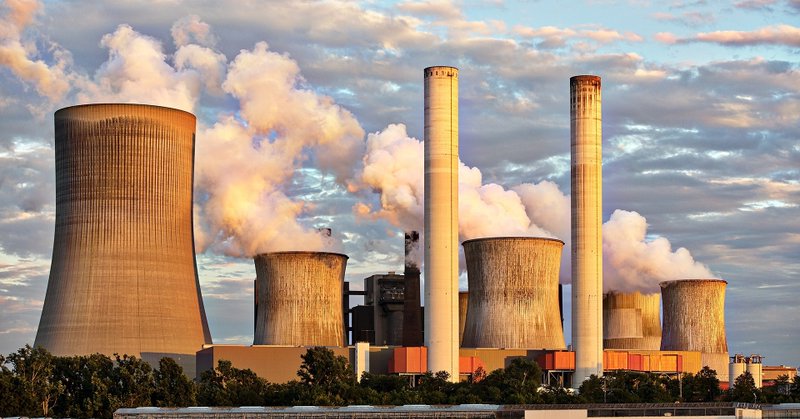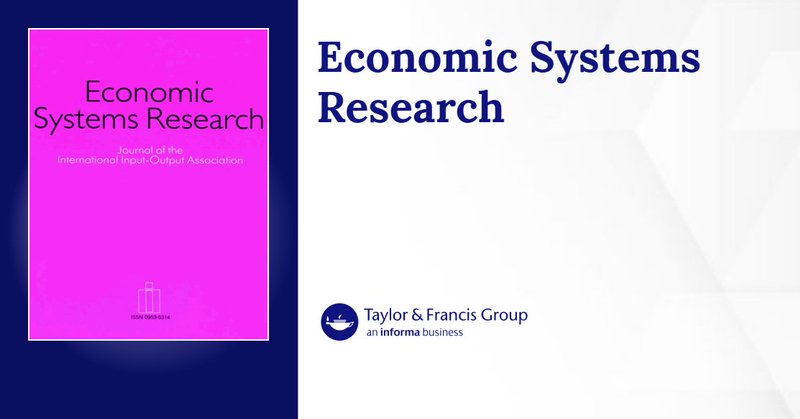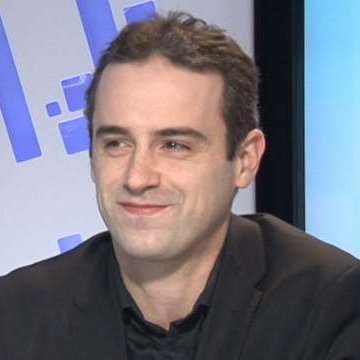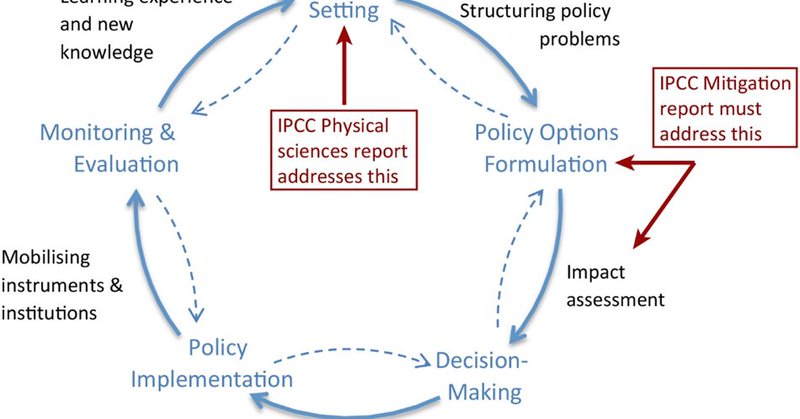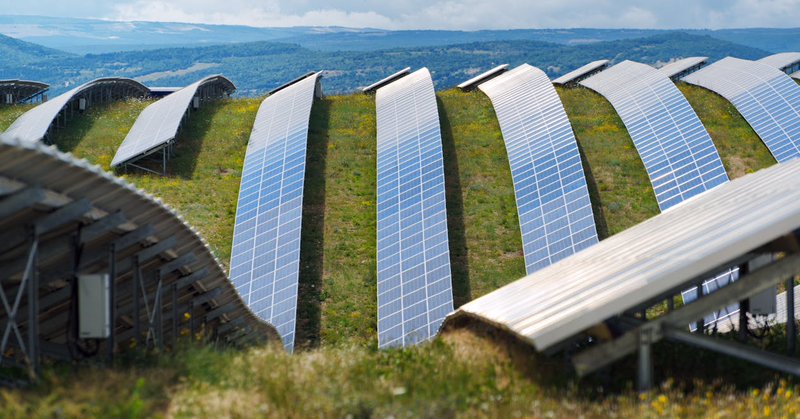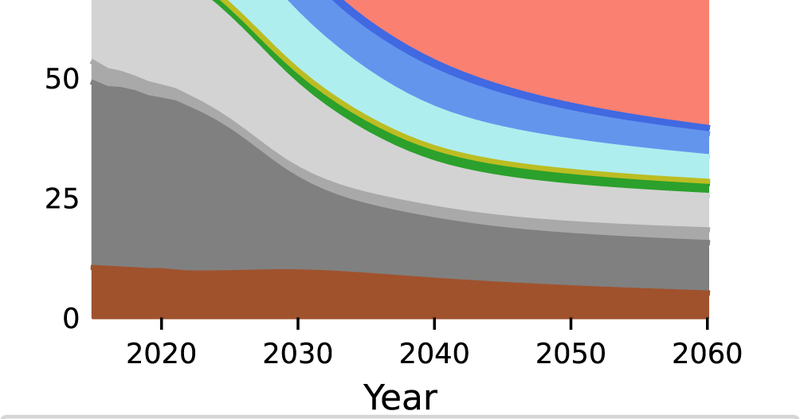
JFMercure
@JFMercure
Followers
759
Following
232
Media
14
Statuses
339
Associate Prof in Climate Policy, U. Exeter Founding member C3A TREX Chief Economist Research Fellow, U. Cambridge Consultant, World Bank Views my own
Exeter, UK
Joined January 2013
We are pleased to announce our fantastic line up for the next term's #ComplexityEconomics seminar series. We're starting with @JFMercure on 23 October and Evidence of a cascading positive tipping point towards electric vehicles https://t.co/mVUYpOpqaM
inet.ox.ac.uk
Here we provide evidence that this tipping point likely lies within the next few years in lead markets of the EU and China, and potentially the US, which…
1
1
15
Our recent research at Exeter @GSI_Exeter @WorldBank By far the largest value at risk is to human capital, i.e. future expected wages, people's livelihoods and careers in sectors tied to fossil fuels. It's already happening, there is no going back. https://t.co/xObVxatQe8
news.exeter.ac.uk
Continued investment in carbon-intensive industries will drastically increase the amount of “stranded assets” as the world moves to net-zero emissions, researchers warn. The study assesses how much...
1
4
6
Speaking at Oxford INET on Oct 30 about technological tipping points. Feel free to join! https://t.co/2WbC4Qe1Hp
inet.ox.ac.uk
Here we provide evidence that this tipping point likely lies within the next few years in lead markets of the EU and China, and potentially the US, which…
0
1
8
Happy to announce that after two years at the World Bank, I've returned to the University of Exeter as Associate Prof in Climate Policy and Finance at the Business School, and member of the Global Systems Institute. I continue as consultant at WB. @GSI_Exeter @UofEBusiness
0
1
20
New postdoc position opening in our team in Exeter working under me, modelling global emissions scenarios with E3ME-FTT. Very exciting. Only 18 months to start with but should be extended according to funding. https://t.co/9ruSFKCCCi
1
2
10
New study on the true costs of a rapid low-carbon transition: not investment in new green technology, but the loss of the brown industries where many people work, challenges in a rapidly transforming economy, and resulting new inequalities. @GSI_Exeter
https://t.co/pJgyDfiP1c
tandfonline.com
A net zero transition is likely to generate substantial and irreversible economic transformation. High-carbon industries and their related occupations will disappear, while new low-carbon industrie...
0
2
7
2 Postdoc positions available in Exeter to work on energy-economy-environment modelling, deadline coming soon! One of the adverts below (second one coming soon): https://t.co/Owtmb0aqaU
1
5
8
"We've been working with decision-makers in China, India, Brazil, in the UK, in the EU, [...] asking them and trying to do modelling for them that will support their decision-making on the #EnergyTransition." 🌏📈@bapeterj
@TheSmithSchool @UniofExeter
0
3
4
New paper in @NatureEnergyJnl: "Economic modelling fit for the demands of energy decision makers"📈 This paper outlines successes from the #EEIST project with insights from @bapeterj @JFMercure @chrispenasco @camjhep @l_diaz_anadon @doyne_farmer & more. @INETOxford @UniofExeter
🆕New comment paper in @NatureEnergyJnl led by @INETOxford's @bapeterj🧔 📊Economic modelling has not kept pace with the needs of policymakers managing the energy transition https://t.co/8MepnHAbR4
0
8
14
We need new economic models to answer new policy questions, using new methods! The models are there we need to use them. @EeistP @bapeterj @doyne_farmer @GSI_Exeter @UniofExeter
https://t.co/Tr9Diuwb4h
1
5
18
Happy to see our recent @IMFNews WP on "cross-border risks in the mid-transition" mentioned by @banquedefrance Deputy Governor @agnesbq1 during the @cepr_org Paris Symposium on Global Imbalances. Original paper here: https://t.co/G7DU4V5HG5
The transcript of my presentation on Global Imbalances at the Dec. 2023 @cepr_org Paris Symposium is now available at @banquedefrance
1
5
12
4- The IPCC process is discrete rather than continuous, offering insights only twice per decade, reviewing information that may be outdated, based on a timescale that is likely more suitable for climatology than policy analysis.
0
0
3
3- The needs of the policy community evolve and do not necessarily follow the narratives of the IPCC’s scenario analysis. The scenario analysis risks therefore being seen as academic and impractical.🧵
1
0
1
2- The IPCC’s scenario process seeks to set standardised climate policy narratives rather than address the emergent heterogeneous practical needs of the policy community worldwide in addressing climate change.🧵
1
0
2
We identify 4 critical issues: 1- The IPCC’s scenario process is policy prescriptive despite aiming not to be. The principle to be ‘neutral, policy-relevant but not policy-prescriptive’, promotes an implicit one-size-fits-all policy prescription for carbon pricing alone.🧵
1
0
2
Our take (@HectorPollitt and I) on what must change in @IPCC_CH 's work group 3 on climate change mitigation for AR7: offer granular analytic support to governments for policy design and avoid unhelpful standardised global climate policy narratives.🧵 https://t.co/fj65umJdVZ
nature.com
npj Climate Action - The role of the IPCC in assessing actionable evidence for climate policymaking
1
11
23
A digestible summary of our work on solar energy: Solar power expected to dominate electricity generation by 2050 – even without more ambitious climate policies. @GSI_Exeter
@CambridgeEcon @WorldBank @EeistP
https://t.co/ta9fCcTJ8m
theconversation.com
Solar energy is set for a rapid expansion – but only if several barriers are overcome, according to new research.
0
7
10
NEW RESEARCH Solar will "dominate" global grid by 2040s It's already cheapest way to get electricity in many countries – incl cost of system storage (Wind is cheapest almost everywhere else) By 2027, solar + system storage will be cheapest everywhere except northern Europe
107
475
1K
Where the solar transition hits a wall is in developing countries due to lack of low-cost finance. The problem is not about cost anymore, but about how to finance low-cost electricity projects. At high interest rates burning diesel still seems cheap... @GSI_Exeter @WorldBank
1
0
6
It's time we revise where we understand the transition is headed. Most model baselines are wrong and have been wrong. Our evidence shows, solar energy is rising so fast that it has past a tipping point and become unstoppable. 🧵 https://t.co/vydDYrtplL
nature.com
Nature Communications - Nijsse and colleagues find that due to technological trajectories set in motion by past policy, a global irreversible solar tipping point may have passed where solar energy...
4
17
45


